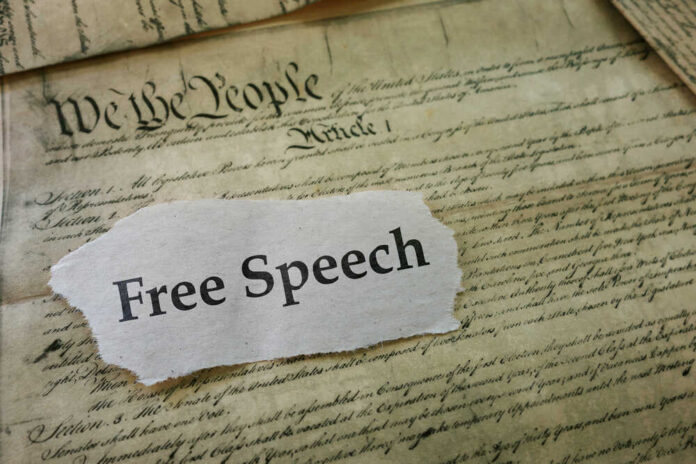
(Patriot.Buzz) – Underscoring the urgency in advancing and protecting free speech, a coalition of 138 distinguished public figures recently endorsed the Westminster Declaration, a manifesto dedicated to fostering a global movement for free speech.
The signatories include a range of intellectuals encompassing a broad spectrum of political beliefs, like psychologists Jordan Peterson and Steven Pinker, biologists Richard Dawkins and Bret Weinstein, economist Jeffrey Sachs, linguist John McWhorter, and medical professionals Martin Kulldorf and Jay Bhattacharya.
These scholars have previously faced opposition due to their divergent views on subjects such as intellectual variety, race, and COVID-19, often conflicting with prevailing progressive stances within academic circles.
Notably, the declaration also garners support from journalists like Bari Weiss, Glenn Greenwald, and Matt Taibbi, who have encountered censorship or been ostracized for their work.
The signatories collectively assert the vital importance of free speech, emphasizing its role in holding governments accountable, empowering marginalized groups, and mitigating tyranny. They firmly oppose the notion that emotional distress or discomfort should warrant censorship, underscoring that open discourse is fundamental to a liberated society.
The declaration articulates that free speech is the highest form of liberty, essential for advocating rights and pursuing new freedoms. The signatories express concern over the increasing efforts by governments, social media entities, and academic institutions worldwide to monitor and limit free expression.
Professor Andrew Tettenborn from Swansea University, one of the endorsers, elaborated on the varied manifestations of censorship in academia, ranging from outright dismissals to more covert tactics like rejected research and stalled promotions, often masked under academic pretenses.
The declaration highlights specific legislative examples that curb free speech, such as Ireland’s Hate Speech Bill, Scotland’s Hate Crime Act, the UK’s Online Safety Bill, and Australia’s Misinformation Bill. It also points to the actions of the Indian and Turkish governments in controlling political content on social media, as well as German and Brazilian laws criminalizing political speech.
Social media companies also employ censorship methods like visibility filtering and search result manipulation, often under the guise of combating disinformation. The EU’s Digital Services Act is criticized for potentially infringing on speech rights by entrusting user data to academia and NGOs.














